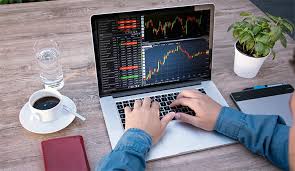
Forex Trading vs Stock Trading: A Comprehensive Analysis
When it comes to investing, forex trading and stock trading represent two of the most popular avenues. Each market holds unique opportunities, risks, and characteristics that can affect a trader’s or investor’s experience. In this article, we will explore the main differences and similarities between forex trading and stock trading, helping you make an informed decision about which path may suit your financial goals. For those looking to dive deeper into trading, check out forex trading vs stock trading Top Trading Platforms that can cater to your specific needs.
Understanding Forex Trading
Forex, or foreign exchange trading, involves the buying and selling of currencies. The forex market operates 24 hours a day, five days a week, and is known for its high liquidity and volatility. Traders can capitalize on price movements influenced by various factors, including economic data, interest rates, geopolitical events, and market sentiment.
1. **Market Size & Liquidity**: The forex market is the largest financial market in the world, with a daily trading volume exceeding $6 trillion. Its size allows traders to enter and exit positions with ease, leading to fewer price discrepancies and tighter spreads.
2. **Leverage**: Forex trading often allows traders to use significant leverage, enabling them to control larger positions with smaller capital requirements. While this can magnify gains, it also increases the risk of substantial losses.
3. **Market Hours**: One of the distinct features of forex trading is its round-the-clock availability. Traders can engage in transactions at any time, accommodating different schedules and lifestyles.
The World of Stock Trading
Stock trading refers to the buying and selling of shares in publicly traded companies. The stock market operates during specific hours, typically from 9:30 AM to 4:00 PM EST on weekdays. It is considered to be less volatile than the forex market, offering a different set of dynamics for traders and investors.

1. **Owning a Piece of the Company**: When you buy a stock, you purchase a share of the company, which can entitle you to dividends and voting rights, depending on the share class. This ownership aspect adds a fundamental layer of value not found in forex trading.
2. **Market Hours**: Unlike the forex market, the stock market operates only during specific hours, which can limit trading opportunities compared to the 24-hour forex environment.
3. **Volatility & Risk**: Generally, stocks tend to be less volatile than currencies, making them potentially less risky for conservative investors. However, some stocks can experience significant price swings, especially during earnings reports or major news events.
Comparison of Forex Trading and Stock Trading
1. Liquidity
Forex trades are often executed with lower spreads compared to stocks due to the high liquidity within the currency market. In stock trading, liquidity can vary depending on the company’s size, market cap, and daily trading volume.
2. Trading Hours
As mentioned, forex operates 24/5, while stocks follow regular market hours. This flexibility can provide forex traders with more opportunities to react to market news and events, particularly across different time zones.
3. Leverage and Margin

Both forex and stock trading allow for margin trading, but the leverage offered in forex is usually higher. Retail forex brokers can offer leverage ratios of up to 100:1 or more, while stock trading typically has lower leverage restrictions.
4. Regulatory Environment
Forex regulation varies more widely than stock regulation, which is often more standardized and enforced. Traders should be aware of the regulatory framework governing their activities to protect their investments.
5. Sample Strategies
Both markets have unique strategies suited to them. Forex trading strategies often revolve around momentum, news trading, and technical analysis, while stock trading might focus more on fundamental analysis and long-term value appreciation.
Educational Resources and Tools
Whether you choose to delve into forex trading or stock trading, education is crucial. Utilize demo accounts to practice trading without financial risk, take advantage of online courses, and stay updated with market news through reliable sources. Many traders also utilize charting software and analytical tools to enhance their trading strategies.
Final Thoughts
Choosing between forex trading and stock trading ultimately depends on your individual investment goals, risk tolerance, and trading style. Both markets offer compelling opportunities for profit but come with their unique risks. Before committing your capital, it’s essential to do thorough research, develop a well-thought-out trading plan, and continually educate yourself on market dynamics. By understanding the differences and similarities between forex and stock trading, you can make a more informed decision on which market aligns better with your financial aspirations.